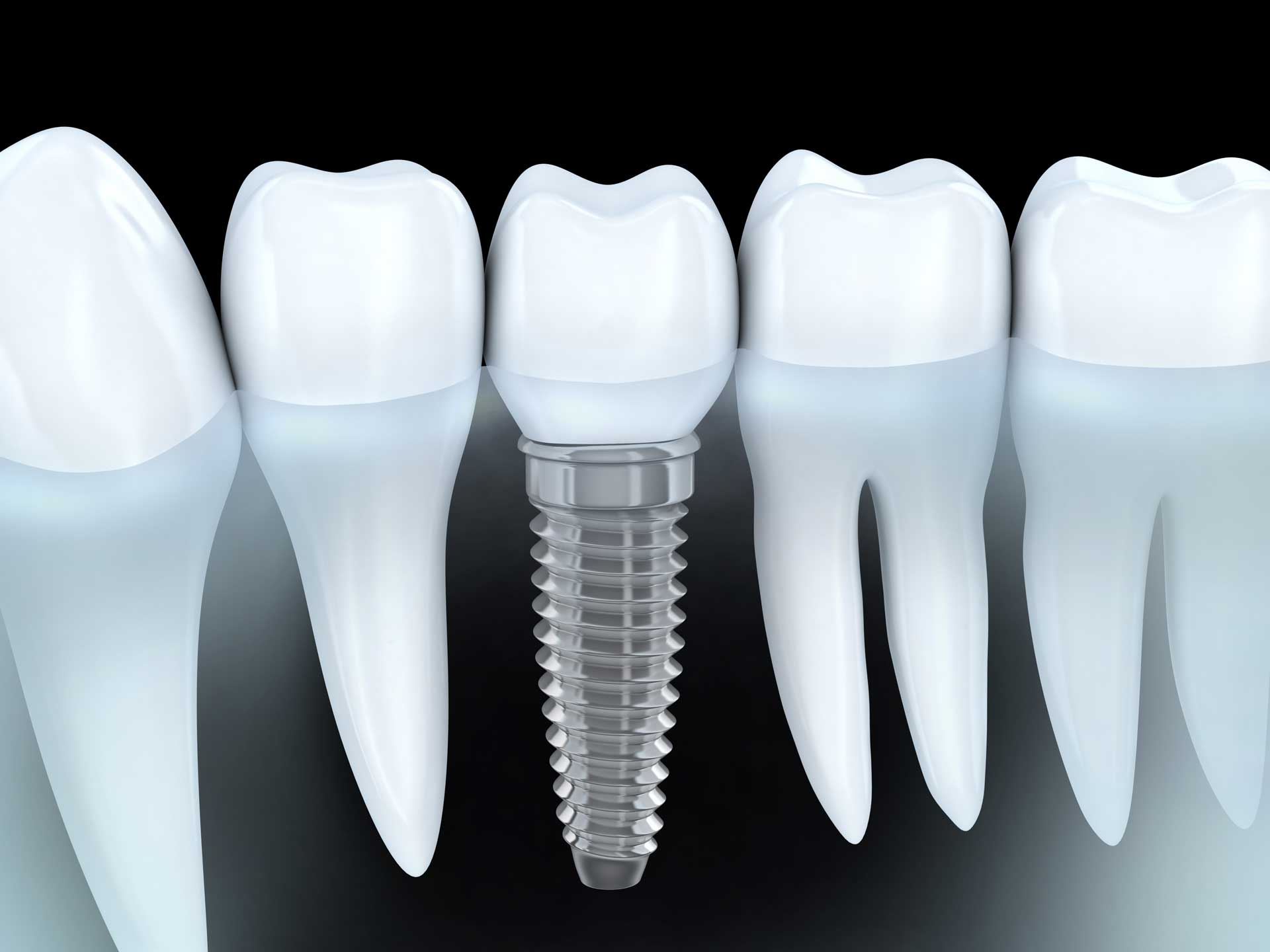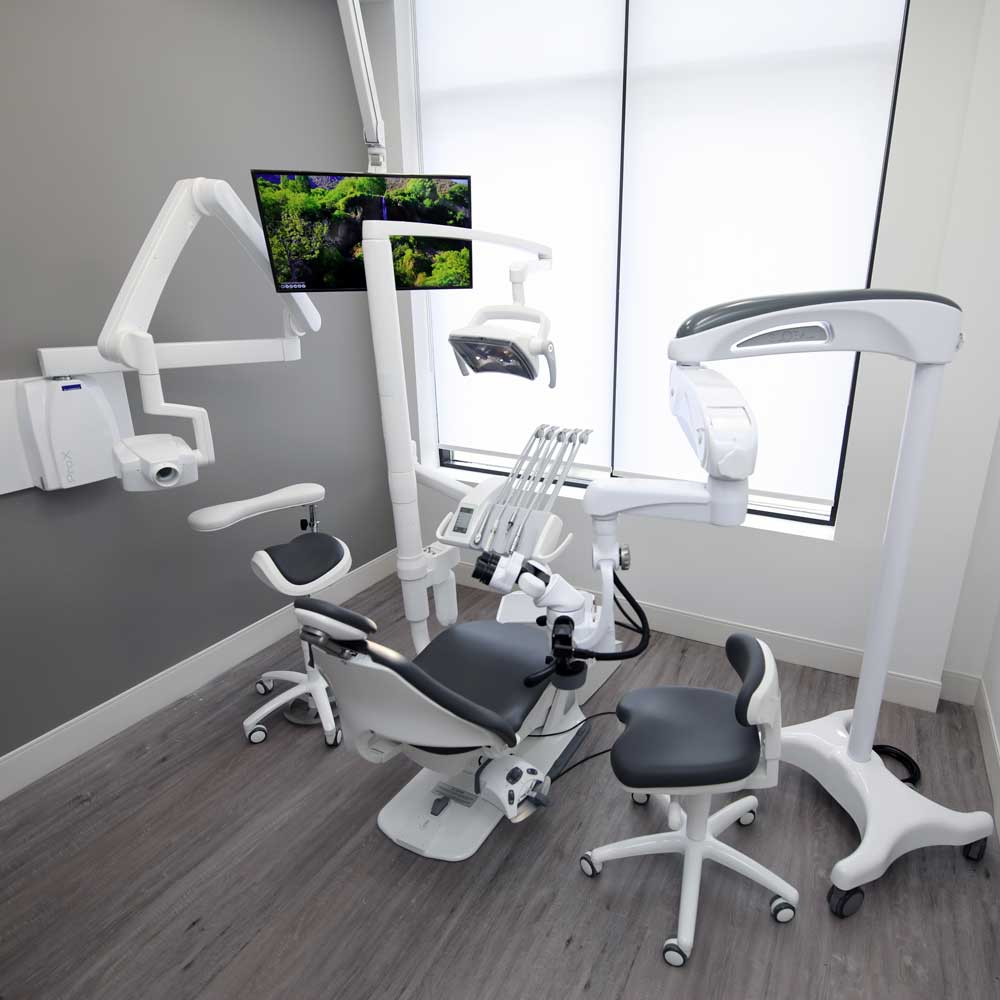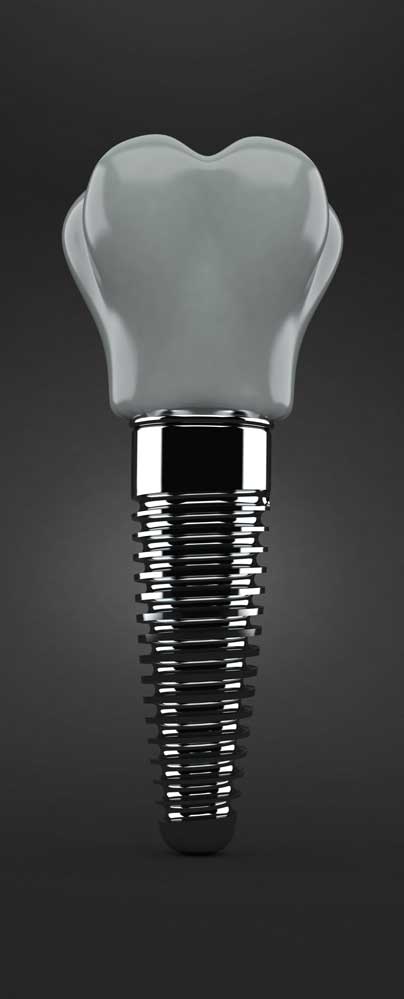
Dental implants are screws made from titanium and placed directly into the jawbone, substituting your missing teeth root. After this procedure, the surrounding bone gradually fuses to the placed implants, which holds them completely in position.
Then, you will have a fixed solution and a smile that looks natural when your dentist or oral surgeon places crowns on top of the implant that match the colour and shape of your natural teeth.
The planning procedure for dental implants might entangle a variety of professionals, including a doctor who arranges everything to unlimber conditions of the mouth, face and jaw (oral and maxillofacial surgeon), a periodontist to specializes in the situation of your teeth, a prosthodontist which designs and fits artificial teeth or occasionally an ear, nose and throat (ENT) specialist.
Because dental implants require more than one surgical procedure, you must have a complete evaluation to arrange everything for the process, include:

Tell any medical conditions and medications you take to the doctor before the dental implant procedure starts. If you have certain heart illnesses or orthopedic implants in your body, your doctor may prescribe antibiotics before your operation to help control infection.
You might have dental X-rays, 3D images taken, and models made of your teeth and jaw.
This plan considers various factors, such as the number of teeth that need to be replaced and the health of your jawbone and other teeth, depending on your individual circumstances.
To prevent pain, your dentist will use anesthesia to numb the teeth and surroundings before the procedure starts. Also, your dental care group will teach you about correct drinking and eating habits before dental implant surgery, depending on your type of anesthesia.
Note: If you’re having general anesthesia or sedation, plan to have somebody take you home after the operation and plan to rest for the rest of the day.
Dental Implants Procedure
Your dentist or oral surgeon will create a small incision to expose the bone behind your gums during the Dental Implant treatment. The dentist will next drill holes into the exposed bone to insert the metal dental implant stick. They bury the post deeply into the bone since it will serve as the tooth root.
At this point of the procedure, the empty place in your mouth will still have a gap instead of the missing tooth. If required, your oral surgeon can position a partial, momentary denture for appearance. You can extract this denture for sleeping or willing to hygiene.
After completing the Osseo-integration step, you might require an additional operation to position the abutment, the piece where the crown will ultimately position. The specialist typically does this minor step with local anesthesia in an outpatient environment.
To place the abutment first, your dentist reopens your gum to uncover the dental implant. After that, they will attach the abutment to the dental implant. Finally, they seal the gum tissue around, but not over, the abutment.

Your dentist or oral surgeon can’t place the crown until your gums recover and your jawbone is strong enough to support the use of the new tooth. You and your oral surgeon can choose synthetic teeth that are flexible(Removable), fixed or a combination of both of them:
After the Dental Implants Process
Whether you have done dental implant surgery in one operation or multiple phases, you may undergo some of the typical afflictions or discomforts associated with any dental surgery, such as:
You might need antibiotics or painkillers after dental implant surgery. If discomfort, swelling or any other problem exacerbates the days after surgery, contact your dentist.
After each phase of surgery, you may need to dine soft foods while the surgical site cures fully. Generally, your surgeon will use stitches that disband on their own. If your stitches aren’t self-dissolving, your oral surgeon terminates them.
Most dental implants are successful. The bone sometimes fails to fuse adequately to the metal-made implant. Eating hard foods, for example, may contribute to implant loss and intricacies.
If the bone fails to fuse adequately, the implant will be removed, the bone will be cleaned up, and you can try the process again in about three months after the complete remedy. You can help your dental work and remaining natural teeth last longer if you.

Just as with your birth teeth, keep implants, synthetic teeth and gum tissue neat. Specially designed brushes, for example, an interdental brush that glides between teeth, can help cleanse the nooks and gaps around teeth, gums and metal rods.
Plan dental checkups to make sure your implants are healthy and working well, and follow cleaning advice from a professional.
Don’t chew on hard things like ice or hard candy, which can break your crowns or natural teeth. Likewise, avoid tobacco and caffeine products that can stain your teeth. Consult a dentist if you grind your teeth.


The type, intricacy of the surgery, and geographic location all affect how much dental implants cost. Dental implants typically come in three main varieties: zygomatic, subperiosteal, and endosteal. The most popular kind of implants are endosteal ones, which are inserted straight into the jawbone and normally cost between $1,000 and $3,000 each, not counting the crown and abutment. Because of their intricate insertion process, subperiosteal implants—which are beneath the gum line but above the jawbone—are a little less frequent and can cost a little bit more. The least common form of implants, zygomatic implants are the most costly and are typically used as a last resort. They are anchored into the cheekbone rather than the jawbone. When you take into account the additional costs for the crown and abutment, the overall cost can rise dramatically and could even reach $5,000 or more per tooth. These prices vary greatly depending on the area and particular dentist office, and they frequently don’t account for additional possible charges like sinus lifts, bone transplants, or the initial consultation and imaging.
We are all afraid of the space of fallen teeth in our mouth, and the best solution for achieving this defunct self-confidence is dental implants; ORIS Dental clinics dentists and specialists are eager to bring back beauty to your smile and mouth. Call us today to book an appointment to start your dental implant procedure. Your dentist may refer you to our clinic by filling out our secure online implant referral form.
Why Choose ORIS Dental Implants?